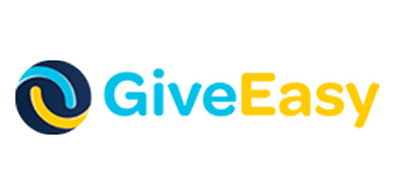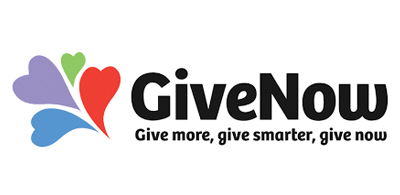WHAT WE DO
Human Rights
“To deny people their human rights is to challenge their very humanity”
— NELSON MANDELA
The Convention on the Rights of Persons with Disabilities (CRPD) is an international treaty recognising the rights of people with disabilities. The CRPD was adopted by the United Nations General Assembly in December 2006. Australia signed the CRPD in 2007 and ratified it in 2008 with the optional protocols being signed in 2009. The international human rights standards outlined in the Convention was accepted by the Australian Government.
The CRPD deals specifically with the rights of people with a disability. Too often in our society people with a disability face discrimination and barriers that restrict them from participating in society on an equal basis with others. Informed and influenced by the lived experience of people with a disability from around the world, the CRPD focuses on the challenges, struggles and necessities of a person with a disability in their interaction with society.
A paradigm shift from the charity model to a rights-based approach, it recognises equal treatment, equal and inclusive opportunities, social justice and full participation in community life.
A key feature of the Human Rights Act 2019 is its complaints mechanism which helps people reach resolutions if they believe a public entity has breached their human rights.
Check out this video which explains the steps when making a complaint, and the role which the Queensland Human Rights Commission plays:
SUFY’s Principles of Social Justice
The principles of social justice embrace the acknowledgment of equity, access, participation and equality, and involve:
- Not only having the same basic human rights as other members of society, but also having the power to exercise those rights.
- Recognising the need to redress the balance of power, so that a fair distribution of economic resources and political power give a level playing field in comparison with other citizens.
- Having fair and equal access to quality goods and services in areas essential to achieving and maintaining a decent lifestyle.
- Participating and contributing in personal decision making and in wider social, economic and political life.
- Having equal opportunity and the capacity to live without discrimination and achieve according to potential.
SUFY’s role in Promoting and Defending people’s Human Rights
- SUFY educates people with disability, families and the broader community about what their rights are and strategies to assist them to uphold these rights.
- SUFY provides individuals and families information about relevant legislation and Acts, which are designed to protect their human rights.
- SUFY’s advocacy efforts are focused on ensuring that individual human rights are being upheld and that individuals are protected from abuse and neglect.
- SUFY brings breaches of human rights and allegations of abuse immediately to the attention of relevant authorities and follows up to ensure appropriate actions has been taken.
- SUFY supports people to access legal services when appropriate.
- SUFY’s annual report documents advocacy responses to abuse and neglect and denial of human rights.
- SUFY’s written/recorded material all emphasise the protection of human rights and the prevention of abuse and neglect.
- SUFY encourages the involvement of family, friends and allies in their advocacy efforts as they provide a safeguard against abuse and neglect.
Key Tenets of the Convention on the Rights of Persons with Disabilities
Key Tenets of the United Nations Declaration of Human Rights recognised by SUFY include:
- All human beings are born free and equal in dignity and rights.
- Everyone has the right to life, liberty and security of person.
- No one shall be held in slavery or servitude.
- No one shall be subjected to torture or to cruel, inhuman or degrading treatment or punishment.
- Everyone has the right to recognition everywhere as a person before the law and are entitled without any discrimination to equal protection of the law.
- No one shall be subjected to arbitrary interference with privacy, family, home or correspondence, nor to attacks upon honour and reputation.
- Everyone has the right to freedom of movement and residence.
- Men and women of full age have the right to marry and to found a family.
- The family is the natural and fundamental group unit of society and is entitled to protection by society and the State.
- Everyone has the right to own property.
- Everyone has the right to freedom of thought, conscience and religion.
- Everyone has the right of equal access to public service.
- Everyone has the right to social security and is entitled to realization of the economic, social and cultural rights indispensable for dignity and the free development of personality.
- Everyone has the right to work and the right to equal pay for equal work.
- Everyone has the right to a standard of living adequate for the health and wellbeing of self and of family, including food, clothing, housing and medical care and necessary social services.
- Everyone has the right to education.
- Parents have a prior right to choose the kind of education that shall be given to their children.
- Everyone has the right freely to participate in the cultural life of the community, to enjoy the arts and to share in scientific advancement and its benefits.
- Everyone has duties to the community.
The Right to Participation in Full Citizenship
SUFY promotes the notion of a civil society and active citizenship of people with disability. SUFY also believes that people with disability are part of the makeup of the wide diversity of our communities. People with disability are to be included and supported to participate and contribute to the rich fabric of family, neighbourhood and community life and be treated in a fair manner with respect for cultural and other differences.
SUFY’s advocacy not only promotes the right of people with disability to be in community but also to be valued participants and contributors in the usual roles and relationships of everyday life.
SUFY recognises and encourages the support and involvement of family members, unpaid carers, formal decision makers and guardians who can assist in the advocacy effort. If you are a carer or family member click here for some helpful resources.



